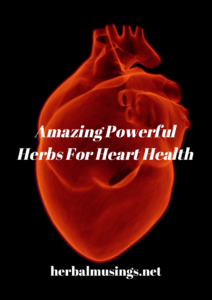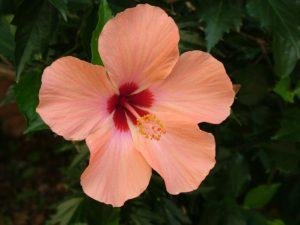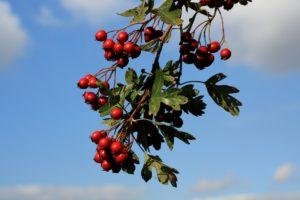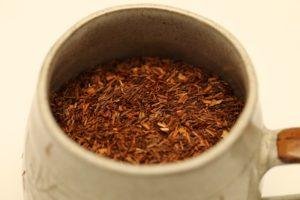There are many herbs that are known to offer significant protection to the heart. Some herbs can calm and regulate the heart, increasing blood flow and nutrients to the heart muscle while strengthening its ability to do its work.
Herbalist Stephen Buhner says the heart is an organ of perception and communication.
In turn, herbs are linked in with the circulation of the planet’s oxygen and nutrient flow. Beautifully, plants “breathe” CO2 (our waste gas) and provide us with oxygen. We depend on each other. We are linked with plants in so many ways. Chlorophyll is chemically similar to red blood cells, specifically the heme, which is the oxygen-transporting part of hemoglobin. The difference is that red blood cells contain iron as their central atom, whereas chlorophyll contains magnesium. Chlorophyll allows plants to use the energy in sunlight to convert carbon dioxide and water into sugar and oxygen. This process called photosynthesis, allows plants to create protein, fiber and other necessities for their growth.
Heart Healthy Herbs
Hibiscus (Hibiscus sabdariffa) also called sour tea because of its tart taste, is made from dried hibiscus calyxes, the dark red flower buds. Hibiscus tea is rich in vitamin C, minerals, and antioxidants. Besides being very antioxidant, hibiscus also has ACE inhibiting activity just like many drugs people take for hypertension.
Drinking hibiscus tea 2-3 times a day is a great way to lower blood pressure.
Hawthorn (Crataegus oxycanthus) has a relaxing effect on the arteries, improving circulation and promoting healthy blood pressure. The berries contain antioxidants that have a variety of therapeutic effects including strengthening the walls of blood vessels. Extracts of hawthorn berries, leaves and blossoms also contain compounds that have a tonifying effect on the heart and vascular system.
Incorporating hawthorn berries into your diet is easy to do with jelly, jam, syrup or eating the berries fresh as a snack.
Dosage is 80–300 mg of a standardized extract two to three times per day. If you are taking hawthorn berry in capsules, or as a tea or jelly, the recommended dose is 4–5 gm per day. Allow at least 2–4 weeks for the herb to take effect and remember that it is a long-term therapy, so the effectiveness of hawthorn may still increase even after one to two months.
Rooibos tea (spalathus linearis) is a flavorful, caffeine-free alternative to black and green tea. The herbal tea contains the antioxidants aspalathin and quercetin which help protect cells from damage by free radicals. It has a positive effect on heart health as it helps keep hormone levels balanced and inhibits the release of excess hormones from the adrenal gland. This can prevent hypertension and high blood pressure. Rooibos tea calms inflammation in the vascular system and acts as a vasodilator. Drinking several cups a day will help your heart stay healthy.

Motherwort (Leonurus cardiaca) is a heart tonic for palpitations, mild heart irregularity, hypertension and strengthening the heart. It’s effective in lowering blood pressure and the plant’s high content of vitamins A and C add to its beneficial effect. Extracts of the plant are a treatment for mild and chronic cardiac and vascular diseases especially in the elderly. Its calming nature slows heart palpitations and a rapid heartbeat making it an excellent remedy for cardiac anxiety.
Tincture dosage – take 1-4ml up to 3 times daily with a 1:4 extraction ratio 25% alcohol volume.
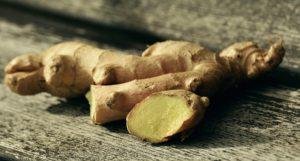
Ginger (Zingiber officinal) is a potent blood thinner so it has the ability to prevent blood clots. This herb is used fresh, dried, powdered or as an oil or juice. Ginger reduces cholesterol, lowers the risk of blood clotting, and helps to maintain healthy blood sugar levels.
As a hot tea, ginger releases the compounds gingerol and protease bringing a rush of comforting warmth that actually increases cardiovascular circulation.
Drink two or three cups of ginger tea throughout the day or add fresh, organic ginger root to your cooking.

Cayenne pepper (Capsicum annuum) supports the heart and circulatory system. It acts as a stimulant, helping the heart to beat more strongly and improving circulation. It also helps reduce irregular heart rhythm. Cayenne’s anti-oxidant action lowers cholesterol and triglyceride levels and its active ingredient capsaicin helps reduce inflammation. As it travels through the circulatory system, it dilates the arteries breaking up blockages and plaque. When fatty deposits settle on the arterial walls, they cause the walls to harden. Cayenne cleanses the arteries helping to strengthen and improve the elasticity of their walls.
There are several ways to use cayenne in addition to adding it to food, you can take it as a tea or in powder, capsules or oil.
An infusion of cayenne tea is made by combining one cup of hot water with ½ to 1 teaspoon full of cayenne powder. Let it sit for ten minutes. Then combine a teaspoon of this infusion in water and take up to three times per day. Capsules are usually 500-800mg and tinctures are 0.3-1ml 3 times a day.
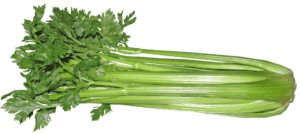
Celery (Apium graveolens) is a very effective natural remedy for lowering blood pressure levels. Celery promotes good blood circulation, helps to maintain good heart health and reduces bad cholesterol. It enhances the overall functioning of the heart and guarantees a stronger immunity, owing to its rich nutritional content and abundant antioxidants. Consuming this vegetable daily is sure to make you less vulnerable to heart complications. An active compound called phthalides in celery boosts circulatory health. Raw, whole organic celery reduces high blood pressure.
Herbs taken as teas, tinctures and added to recipes can significantly lower your blood pressure and improve your overall heart health.
Let me know what you think! Would you use these herbs?
